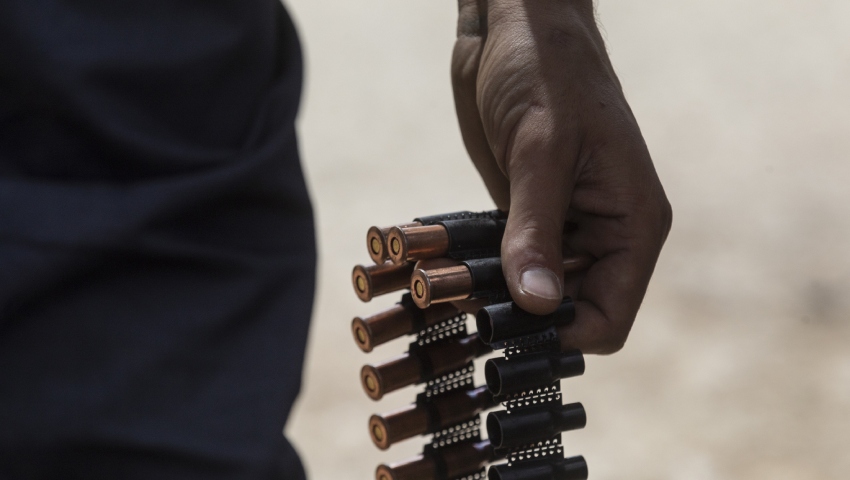State-linked Russian private military contractors have spearheaded a new wave of kinetic, economic and information warfare across the developing world. How can the West compete in this race for competitive control?
To continue reading the rest of this article, please log in.
Create free account to get unlimited news articles and more!
Over recent years, state-linked Russian private military contractors have rapidly expanded their global footprint. From operating in an estimated two countries in 2012, Russian contractors are now thought to operate in 27 countries acting across a range of paramilitary roles.
Jared Thompson, research associate at the Transnational Threats Project at the Center for Strategic and International Studies (CSIS), in a recent submission to the Modern War Institute at West Point found that Russian private military contractors have increased their operations in the developing world – operating across the resource sector and bolstering repressive regimes – demonstrating a broadening of Russia’s irregular warfare campaign to exercise competitive control over the developing world.
“The Wagner Group is less a single entity than a network of businesses and mercenary groups, linked through their connections to associates of President Vladimir Putin, most notably Russian businessman Yevgeny Prigozhin,” Thompson wrote.
“While ostensibly a private security contractor, Wagner has been characterised as a 'creature of the Russian state' with close ties to its military intelligence services and a directive to pursue the economic interests of Russian elites. The Wagner Group has undertaken a variety of security tasks, including training local forces and VIP protection, which now form the basis of a potential contract in Mali.”
His findings evidence that the use of private military contractors has enabled developing states to let their traditional security partnerships fall by the wayside. In fact, the recent agreement between Mali and Russia’s Wagner Group has seen Mali distance itself from France, with France seeking diplomatic recourse with the Russian government to reverse the decision.
“On September 13, Reuters reported that an agreement between Mali and the Wagner Group was imminent. The deal would reportedly see one thousand mercenaries deploy to the country to train Malian security forces and protect senior political leaders for a monthly price tag of $10.8 million. Wagner would also gain access to three mining deposits as further compensation for its services. The news followed renewed bilateral engagement between Mali and Russia, including a recent visit by the Malian defense minister to Moscow,” Thompson argued.
“France’s chief Africa diplomat, Christophe Bigot, travelled to Moscow on September 8 for meetings with the Russian foreign ministry. French Foreign Minister Jean-Yves Le Drian called a potential Wagner presence in Mali 'incompatible' with France’s military footprint in the country.”
Thompson’s analysis of Wagner’s operations in Mali is a concise depiction of the symbiotic characteristics of modern irregular warfare. Not only are there elements of grey zone and economic warfare activities present in Wagner’s operations, but the Wagner Group has demonstrated a strong willingness to undertake information warfare to influence local and international populations.
"The broader Wagner apparatus has undertaken public relations efforts designed, at least in part, to support its deployment to Mali. The Foundation for National Values Protection (FZNC), an entity sanctioned by the US Treasury Department for disseminating disinformation, released a public opinion poll in September purporting to show 87 percent support among Malians for the government’s outreach to Wagner. The FZNC is headed by Maxim Shugaley, who works 'under the direct supervision' of Prigozhin, and previously conducted similar polls in the Central African Republic (CAR),” Thompson notes.
Indeed, Thompson notes that the Wagner Group has rolled out this model of competitive control across numerous other African nations with varying levels of success.
“In CAR, Wagner nominally trains the Central African military and provides protection to senior government officials like President Faustin-Archange Touadéra. Yet the Wagner Group has also facilitated the diplomatic and economic activities of companies and individuals linked to Putin’s associate, Prigozhin,” Thompson argued.
However, the success of Wagner is far from guaranteed, having observed sub-optimal outcomes in Mozambique and absolutely disastrous outcomes in Libya. But as Russia continues to learn from previous mistakes, how can the West respond to Russia's growing competitive control?
Thompson recommends that the US and France respond with irregular activities to dampen the support that contractors may receive from the public, such as highlighting their human rights violations. Such tactics were successful in Libya, and would discredit further governments who seek to utilise Wagner's help.
Nevertheless, such multi-pronged applications of irregular warfare have seen longstanding military relationships abandoned. But why?
Anne Applebaum in the coming December issue of The Atlantic shone a spotlight on why countries with irreconcilable views – from communists to theocrats – have found common ground with one another.
“Their links are cemented not by ideals but by deals – deals designed to take the edge off Western economic boycotts, or to make them personally rich – which is why the can operate across geographical and historical lines,” Applebaum wrote
Up until now, it seems that the West's military apparatus has not been able to weather the storm of irregular warfare.
Get involved with the discussion and let us know your thoughts on Australia’s future role and position in the Indo-Pacific region and what you would like to see from Australia's political leaders in terms of partisan and bipartisan agenda setting in the comments section below, or get in touch with

 Login
Login







